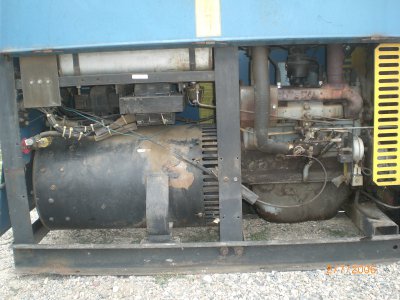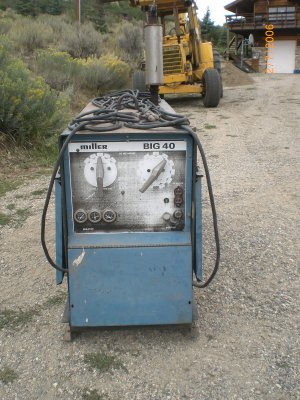OK, in doing some research I came across this which seems to explain why DC+ is important:
"One way to look at the polarity issue is by the welding rods that are available to you. 6010 runs DC+ only. 6011, which is similar to 6010 (forceful arc, deep penetration, light slag) runs best on AC, but runs all right DC+. 6012 runs best DC-, not good at all DC+. 7018 runs DC+ up to about 300 amps, better on AC above that. 6013 runs well either AC or DC+ for general welding, but was developed for high speed sheet metal work on DC-. And so forth.
What's important is matching the electrode (rod) to the job first, then running it on its best polarity after that. You would rarely match the polarity to the job first, and the rod to the polarity second---with two main exceptions: If you are having a problem with arc blow (the arc wanders off course because of the magnetic field caused by the location of the ground, or some other magnetic field disturbance) which you can't resolve by moving the ground clamp, you can turn to AC, which is not subject to arc blow. The other situation where polarity would be a primary consideration is when you know you need more of the heat in the work than in the rod. DC- provides 2/3 of the heat to the work, DC+ provides 2/3 of the heat to the electrode, and AC is 50/50. 6012 and 6013 electrodes were both originally developed for high speed sheet metal work on DC-, so that would be an example of a time to choose that polarity. I don't do much sheet metal work with stick, high speed or any other way, so I couldn't say. I do know that 6012 running DC- is unusually good at filling gaps in bad fitups, but 6010 is good for that too, and there's not as much slag to entrap with 6010.
DC is generally considered to strike an arc easier and stay lit better than AC, but if any electrode strikes easier or stays lit better than 6013 running AC (or DC, to be fair) I haven't run across it.
There are some real differences between the three polarities in stick welding, but they're not so profound that an inexperienced operator would even necessarily notice them. If your son gets to the point where he can tell just when to use one polarity rather than another, or even just how high to set the current, before he's burned ten thousand sticks, then he's got a real gift and maybe he should look into something that pays better."
http://www.yesterdaystractors.com/cgi-bin/viewit.cgi?bd=toolt&th=176652%3E
So what is a good, hopefully used, Arc welder with the three polarity modes?



